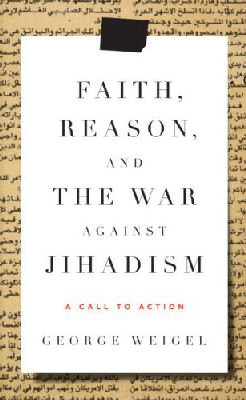
|
Posted January 11, 2008
Book: Faith, Reason, and The War Against Jihadism: A Call To Action Author: George Weigel Doubleday. New York. 2007. Pp. 195 An Excerpt from the Jacket:
An Excerpt from the Book: Lesson 8. Genuine realism in foreign policy takes wickedness seriously yet avoids premature closure in its thinking about the possibilities of positive change in world politics. Understanding the inevitable irony, pathos, and tragedy of history; being alert to the dangers of unintended consequences; maintaining a robust skepticism about schemes of human perfection (especially when politics is the chosen instrument of salvation); cherishing democracy without worshipping it — these elements of the Christian realist sensibility, perhaps most eloquently articulated during the mid-twentieth century by Reinhold Niebuhr, remain essential intellectual grounding for anyone thinking seriously about U.S. foreign policy in the war against jihadism. Yet realism, which is less a comprehensive framework for reflection than a set of intellectual and moral cautions, must always be complemented by a confidence in human creativity’s capacity to affect the course of history for the better. Things can be made better, if we have the wit, the will, and the patience for it. As Dean Acheson said at another moment when history’s tectonic plates were shifting, the task that he and Harry Truman faced “only slowly revealed itself. As it did so, it began to appear as just a little bit less formidable than that described in the first chapter of Genesis. That was to create a world out of chaos.” Our task today is not dissimilar. In carrying it out, we would do well to remember the counsel of the late public philosopher Charles Frankel: “The heart of the policy-making process. . .is not the finding of a national interest already perfectly known and understood. It is the determining of that interest: the reassessment of the nation’s resources, needs, commitments, traditions, and political and cultural horizons – in short, its calendar of values.” Table of Contents: Introduction: Deadly Serious Business 1. Understanding the enemy 2. Rethinking realism 3. Deserving victory |
|
